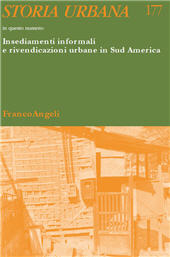Notas sobre la vida política en las villas de Buenos Aires : dinámicas regionales, corrientes ideológicas y formas de organización entre 1958 y 1966
79-96 p.
This article explores a critical moment in the political life of the villas of Buenos Aires, extending from 1958 to 1966, when the first sectoral organisation to represent its inhabitants was established. In order to provide a comprehensive characterisation of this process, the following elements are considered: firstly, the regional dynamics in which it is situated secondly, a series of similar organisations formed in other cities and thirdly, the notions about urban informality that were promoted by different international organisations created in the framework of the Cold War. The ideological currents that converged in this first sectoral organisation are then investigated. The Communist Party played a leading role in this process, though other influential factors should be noted, including the outlawed Peronism and, towards the end of the period, a radicalising branch of Christianity. Concurrently, a set of organizational forms emerged that persisted across subsequent decades.
These forms were characterized by the tendency to congregate in commissions comprising delegates, along with the evolution of local and plenary assemblies. These assemblies served as platforms for deliberating and subsequently implementing the demands that were collectively agreed upon, thereby securing a degree of integration within the prevailing political agenda of the era. [Publisher's Text].
-
Articoli dello stesso fascicolo (disponibili singolarmente)
-
Informazioni
Codice DOI: 10.3280/SU2024-177005
ISSN: 1972-5523
MATERIE
PAROLE CHIAVE
- Informalità urbana, Buenos Aires, Villas Organizzazione territoriale, Partito comunista argentino
- Urban Informality, Buenos Aires, Shantytowns, Territorial Organization, Argentine Communist Party


